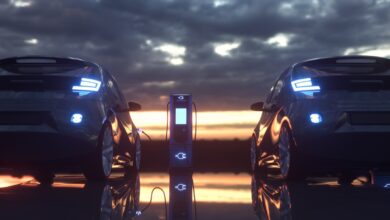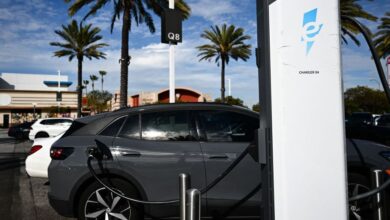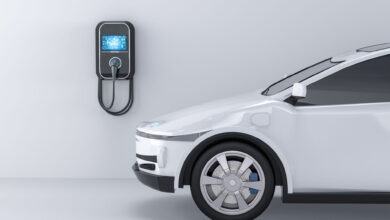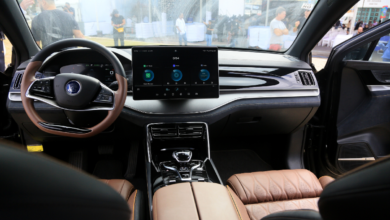EV sales are slumping. But Biden wants to force you to buy one anyway
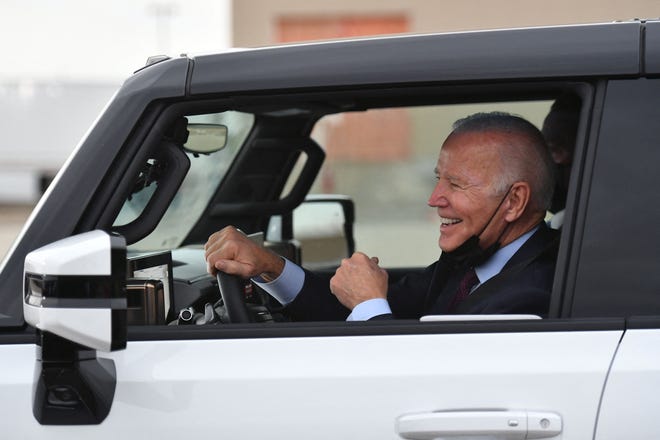
In 2013, then-President Barack Obama earned himself the “lie of the year” after he had repeatedly assured Americans, “If you like your health care plan, you can keep it.”
That simply wasn’t true, and the rollout of Obamacare (Affordable Care Act) caused millions of people to receive cancellation notices. The government’s intrusion into the private health insurance market had major consequences, and many Americans weren’t happy about it.
More than 10 years later, President Joe Biden is driving major disruptions in another major U.S. industry: automobiles.
Unlike his former boss, Biden’s not even bothering to promise the American people that if they like their car, they can keep it.
Biden, however, also is not being upfront with the public about what his new Environmental Protection Agency rule actually means.
The headline announcing the EPA mandate last month proclaims: “Biden-Harris Administration finalizes strongest-ever pollution standards for cars that position U.S. companies and workers to lead the clean vehicle future, protect public health, address the climate crisis, save drivers money.”
As with most bureaucratic mumbo jumbo, the meaning is less than clear. I’ll translate: If you like your current gas-powered car, SUV or truck, too bad.
Liberals’ bad economic ideas:High wages, 32-hour workweeks sound great – but there’s a steep price
What people want doesn’t play into Biden’s rules
The timing of this rule isn’t a coincidence. It allows Biden to claim a “win” on his promises to the climate change crowd months ahead of the presidential election.
And Biden needs all the help he can get.
Yet, the broader implications – if drivers fully understood them – aren’t likely to win the president a lot of fans.
Biden’s age is showing:Special counsel says Biden is ‘elderly man with a poor memory.’ And he’s the Democrats’ guy?
The final rule, which begins in earnest in 2027, demands that automakers quickly amp up production of electric vehicles. By 2032, the emissions standards dictate that roughly 70% of new vehicle sales be battery-powered electric or hybrids.
For comparison, EVs made up just under 8% of new car sales last year.
If automakers don’t fall in line, they risk hefty fines.
While the EPA doesn’t specifically call for EVs, the only way automakers could reach the new targets is with a major uptick in that technology.
It’s worth noting, too, that a switch to electric batteries is not a panacea for the climate. Mining and processing those materials take a toll ‒ something Biden ignores.
“There’s a huge amount of environmental impact of mining the lithium and copper and all the materials that go into it,” James Meigs, a senior fellow at the Manhattan Institute and the former editor of Popular Mechanics, told me. “So by the time that battery gets to your car it’s already responsible for a huge amount of carbon emissions.”
This mandate also comes at an awkward moment. People in the car market are not flocking to EVs, and sales are not meeting expectations.
Consumer interest in EVs has declined for four consecutive months, and the public remains concerned about a lack of charging infrastructure, the price and confusing tax credits. Even comparatively popular Teslas are in a slump.
Negative headlines don’t help, either.
When drivers in Chicago couldn’t keep their EV batteries charged during a deep freeze earlier this year, it didn’t instill confidence for those of us who live and drive in the Midwest.
Expect Trump to hammer Biden on EV mandate
Because we’re in a presidential campaign, expect to hear former President Donald Trump harp on potential consequences of Biden’s EPA rule. In fact, Trump has vowed to overturn it.
“Joe Biden’s extreme electric vehicle mandate will force Americans to buy ultra-expensive cars they do not want and cannot afford while destroying the U.S. auto industry in the process,” the Trump campaign told Fox News last month. “This radical policy is anti-jobs, anti-consumer and anti-American.
I have to agree with Trump on this one.
However, automakers are already gearing up to meet the stricter standards, spending billions in the process. Constantly retooling to meet government-imposed targets presents its own challenges to the industry.
Biden threatens freelance work:Biden claims to stand for women, but his new regulation will kill jobs that women want
No question, the impact on car companies will be huge. But what bothers me most about this regulation is that Biden, through regulatory decree, is trying to force a dramatic change that most Americans don’t fully understand yet and very well may not want.
Rather than go through Congress, where a robust public debate could take place, Biden quietly did it through the rule-making process.
“It’s politically deceptive in a way that is all too typical of the Biden administration in a lot of different areas,” says Meigs of the Manhattan Institute. “They have opted to make major policy changes out of sight of the average voter.”
If Biden doesn’t want us to keep our beloved gas-powered cars, then he should just say so. The American people deserve to know what a future with Biden at the wheel really looks like.
Ingrid Jacques is a columnist at USA TODAY. Contact her at ijacques@usatoday.com or on X, formerly Twitter: @Ingrid_Jacques.

